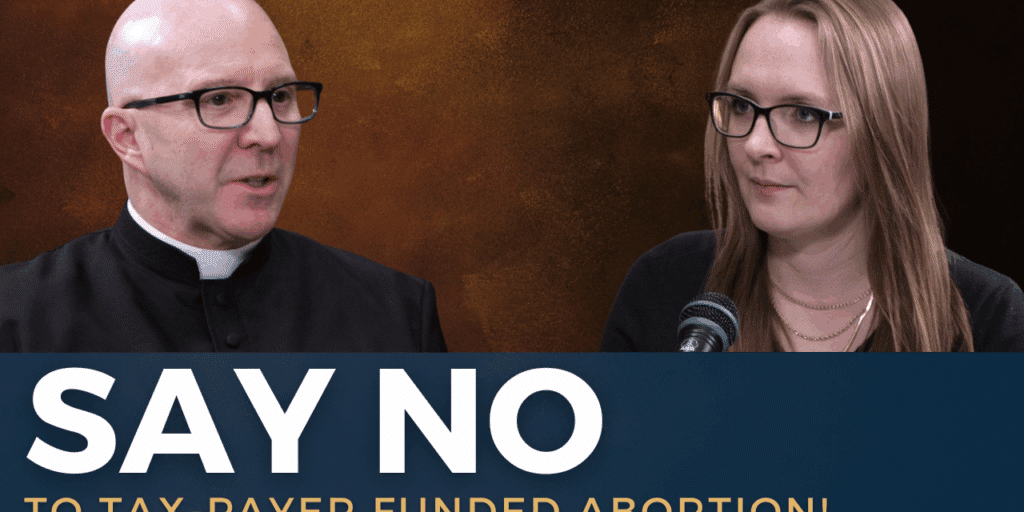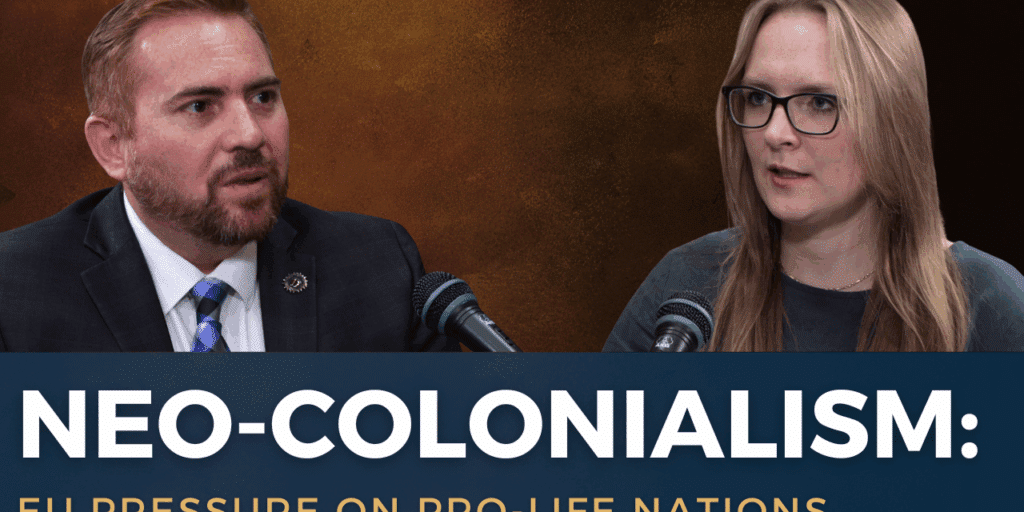Reclaiming Fatherhood to Heal the Family
“Human fatherhood gives us an anticipation of who God is. But when this fatherhood does not exist, when it is experienced only as a biological phenomenon, without its human and spiritual dimension, all statements about God the Father are empty. The crisis of fatherhood we are living today is an element, perhaps the most important, threatening man in his humanity. The dissolution of fatherhood and motherhood is linked to the dissolution of our being sons and daughters.”
― Cardinal Joseph Ratzinger, Palermo, March 15, 2000
Dad, How Do I…
Late last month, even as the pandemic raged and our TV sets and smartphones were filled with dire news of death and growing civil unrest, something strange, and quiet, and beautiful…and heartbreaking went viral on Twitter.
It was a tweet by a woman named Gissel Carmona. She linked to a brand new YouTube channel, run by Chicago resident Rob Kenney. Carmona wrote: “His father left when he was 12, now he has a [YouTube] channel called ‘Dad, how do I?’ to help kids who’re growing up without dads.” She called Kenney’s YouTube project, “the purest thing.”
As I write this, Carmona’s tweet has been “liked” over 2 million times, and retweeted 650,000 times. Meanwhile, Kenney’s YouTube channel has garnered over 2.2 million subscribers, putting him in the stratosphere of Youtube influencers. Which is extraordinary when you consider the humdrum nature of the videos Kenney uploads: unedited, no-frills instructional videos about such things as “how to swap out a car battery,” or “how to use a stud finder,” or “how to tie a tie.”
So how does an unassuming middle-class American dad go from being unknown to an Internet sensation simply for showing people how to do the most basic of household tasks? Many of the comments below his videos leave little doubt about what’s going on. Comments like this one: “seeing this brought me to tears. My dad walked out on me when I was 11 and barely taught me anything. This is so d… sweet it’s overwhelming I want to give this man a hug.” Or this: “Oh, this makes me emotional. My dad walked out when I was 19 but he was gone emotionally LONG before that. These are the things my mum taught me instead because it was important.”
Or this one: “My father left when I was 6 and have not heard from him sence [sic]. My mother does not help at all. I feel like this [is] an essence of my father, and I almost started crying… Thank you for being the dad I never had. Thank you for being the light in my dark and broken world. Keep it up.”

Thank you for being the dad I never had. Kenney told People Magazine that after his channel went viral, he started receiving a huge number of messages from people who have lost touch with their dads. “The stories of pain and heartbreak can be overwhelming,” he said. Kenney himself describes how, when he was just 14 years old, his father announced to him and his seven siblings that he no longer wanted anything to do with them. Then he walked out.
Fatherhood on the Brink
Yesterday, we celebrated Father’s Day, a day when we express our gratitude and reflect upon our father’s irreplaceable role and contribution in family life and society.
This may seem too strong a statement, but I believe fatherhood – at least the fatherhood I was privileged to experience from my father and grandfathers, and the pastors of my youth – is on the brink of extinction. And I believe that a great deal of the unrest that we are experiencing right now – the growing violence, ideological extremism, militant secularism, immorality, polarization, and the epidemic of incivility – can be traced to the absence of strong, stabilizing father figures in people’s lives.
Take those heartbreaking comments quoted above, and multiply them several million times, and you have a picture of the pain afflicting our country and world. So many people are walking around with a sense of worthlessness, and the pain of having been effectively abandoned by the one person they were supposed to trust and look to for protection more than anyone else in their lives.
Seventy years ago, 6% of America’s children lived in a home without a father. Spring forward to today and one out of every four children does not have a father at home. Depending on the source, some say that upwards of 60 percent of American children do not have their biological father at home.
Watch Kenny’s videos, and you will quickly understand what it is that people see in him. It is his quiet, calm way of speaking, which projects a sense of stability and reliability; it is his almost stereotypical ordinariness, so that one feels that he could be one’s own father; and it is the way he expresses his gratitude to and unconditional love for a crowd of nameless YouTube subscribers in a way that somehow comes off sounding absolutely authentic and heartfelt.
His second-most watched video is called “I am proud of you.” He concludes the video saying, “I love you. I’m proud of you. God bless you.” How many young men and women in our country have spent their whole lives craving to hear those words from the lips of their own fathers, but never did? And how many of them have, as a consequence, pursued a destructive path in futile pursuit of the kind of unconditional love that they were created to receive, but never did receive from their fathers?
So often, our culture treats the breakdown of the family as if it is no big deal. Radical progressives openly revile the family as a source of repression and even violence, a patriarchal power structure designed to subdue and control, and which must therefore be abolished. Others, less extreme, simply view divorce, or serial cohabitation, as just the inevitable and necessary outcome of adults possessing the “freedom” to define their own destinies, free of outside interference, free to pursue sexual “fulfillment.”
In either case, what gets lost in the picture is the children: the children who are denied the structure and stability that they so desperately crave and need – and deserve – in order to situate themselves in the world, and to develop their personalities to the fullest, knowing that they are protected and loved unconditionally.
Reclaiming Fatherhood
Bishop Thomas Olmsted, in his pastoral letter “Into the Breach,” challenges Catholic men, indeed all men, to be prepared for the spiritual battles in their lives. Countering the false images of manhood, Bishop Olmsted rightly emphasizes the unique role and contribution of men in healing our families and societies when he says:
“Men, do not hesitate to engage in the battle that is raging around you, the battle that is wounding our children and families, the battle that is distorting the dignity of both women and men. This battle is often hidden, but the battle is real. It is primarily spiritual, but it is progressively killing the remaining Christian ethos in our society and culture, and even in our own homes.”
If America (indeed any country) is going to solve its moral and social dilemmas, we must reclaim and re-establish the definitive role of the family – one man and one woman in an exclusive, indissoluble, and fruitful union – and particularly the irreplaceable role of the father. Modernism has done its best to dissolve the family structure, deliberately blurring the distinctions between mothers and fathers, and dismissing the sacred responsibilities that each have to one another and their children.
Today’s culture conveys the message to men that they are not needed in the distinctive roles of father and husband. Our media routinely portrays and belittles fathers as hapless, powerless, unwanted, and bumbling fools. Even in children’s movies, so often fathers, even when they are portrayed as “nice” or sympathetic, catastrophically fail to understand or guide their children; often the whole plotline of the movie is about how the father must learn from the child, rather than the child being guided by the father. Is it any surprise, then, when the message coming from every corner is that men are unwanted and unneeded, that they up and leave at the first sign of trouble?
Nor does it help that so many young men, from the youngest age, are taught to view romance and marriage not as a vocation of sacrifice for the good of others, but as the selfish pursuit of “self-fulfillment” and pleasure. Far too many people now look on marriage as simply a way that should be satisfying to “me,” that should make me happy, because it will bring me more satisfaction than burdens. Such an approach is too small, too self-centered. And when the hard times hit – as they inevitably will – when they are called upon to sacrifice something of themselves, many simply conclude that they were fooled. “This isn’t what I signed up for,” they say. And so, they leave.
But Christian marriage is not just an expression of human affection, it is a sacrament of the love of Christ, a way for husband and wife to minister to each other and to their children. In this way the Christian family becomes a place where others can see the beauty and power of Christ’s redeeming love, a love that is often obscured in our fallen world. This is why marriage is a Christian vocation.
Fatherhood is essentially relational, a way a man places himself in the service of the human community. Fatherhood cannot be understood in isolation from the culture in which we live. Fatherlessness is socially, spiritually, and economically damaging. A home without a father has been shown to be more vulnerable to violence, and children without their father are much more apt to experience more frequent physical and sexual abuse, poverty, poor academic performance, juvenile delinquency, promiscuity, pregnancy, and future divorce. These destructive effects of widespread fatherlessness spread out horizontally in our culture like ripples, but spread vertically across generations like tidal waves, with fatherlessness leading to further fatherlessness, in a vicious cycle.
To short circuit this cycle, fatherhood as a vocation of love – self-giving love – desperately needs a much greater focus in our homes, schools, churches, and societies. We desperately need to challenge our men to be the everyday heroes they were created to be: strong, rocklike, Christ-like men, who are ready to lay down their lives for their wives and children.
Marriage, understood properly, and lived in the spirit of a vocation, reflects and fosters responsibility, devotion, hard work, and many other virtues, which are passed on from fathers to children. This in turn nurtures success in school and in social relationships and sets children up for future success.
We in America, as in most Western countries, find ourselves in a most dire situation caused by a self-inflicted wound – a moral and spiritual collapse. Of course, what has made this all possible is the relentless assault upon the family, fed by false ideologies like self-autonomy. Exaggerated individualism characterizes modernity, focusing on the person isolated from every collective entity, including the family.
Fatherhood, when it models the love of the heavenly Father for us, possesses within itself enormous power to heal this wound. Let those of us who are fathers – spiritual and physical – vow to be the fathers our children need: strong, self-sacrificial, forgiving, humble, and filled with Christ-like love. In these times of chaos, it is easy to feel helpless to make a difference. But I believe that it is not primarily through brilliant activism or grand reform that the healing of our culture will come about, but first and foremost by interior conversion, and love that we show to one another within the walls of our own homes. And so, I challenge all fathers, quoting the words of St. Francis de Sales: “Be who you are and be that well!”
Human Life International
As president of Human Life International, Fr. Boquet is a leading expert on the international pro-life and family movement, having journeyed to nearly 90 countries on pro-life missions over the last decade. Father Boquet works with pro-life and family leaders in 116 counties that partner with HLI to proclaim and advance the Gospel of Life. Read his full bio here.








So refreshing to hear the truth spoken Let’s hear it for the fathers!! Let’s hear it for all men!! Mothers you have a career it’s called MOTHER-HOOD!! Stay and MOTHERyour children, give the jobs back to the men and let them be the BREADWINNERS. My parents were not perfect but I knew who I was, and I knew what a family was. That’s important.